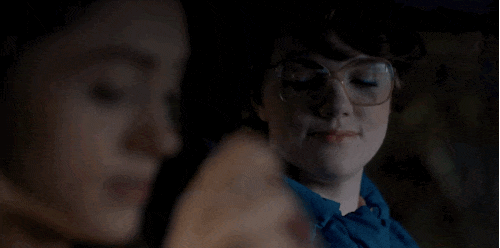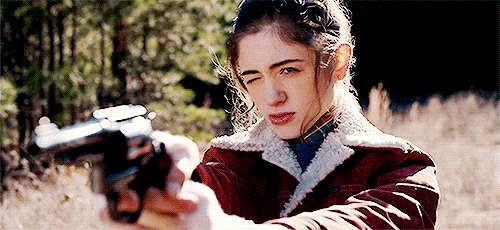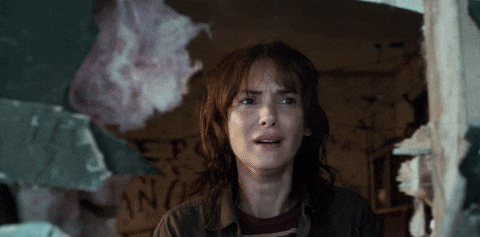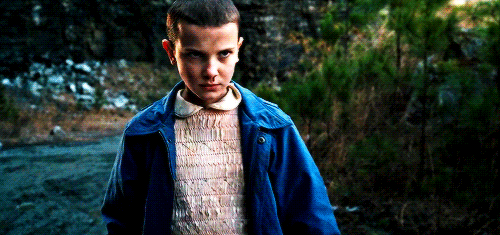Beware: This article contains a few "Stranger Things" spoilers, read at your own risk!
I realize I'm a bit late to the Stranger Things party, but that doesn't mean I'm any less of a fan of the genius (!) that is this latest Netflix original series. This new take on science fiction has captivated the nation and rekindled people's hope in good television.
There are a few criticisms, however, about the portrayal of female characters in the series. While some viewers were quick to proclaim Stranger Things a feminist work of art, more careful viewers challenged that perspective, finding the female characters in Stranger Things to be far from feminist heroes.
I've looked into the arguments both for and against a feminist interpretation of the female characters in Stranger Things and came to the following conclusions:
Barb isn't all that.

I know — the people love Barb. Why? I feel bad for the... unfortunate circumstances that befall her, but the public's obsession with Barb are unwarranted and simply silly. Barb gets about six minutes of screen time (counting her last appearance), and is a phantasmic presence that exists only in the mind of those who bother to remember she existed for the rest of the series. Sorry to break it to you, but Barb is a plot device. She's a concerned friend with cool glasses and slut-shaming tendencies who serves no other purpose than to make everything more mysterious and sinister. Barb was used by the writers and we were used by Barb.
Nancy, you were so close. You could've been great.

Nancy Wheeler is an extremely involved character in the overall plot of Stranger Things. Far from a silent and passive female presence, Nancy makes big moves and decisions that lead to ultimately saving the day (for the moment). Unfortunately, however, many of Nancy's actions are entirely motivated by the men around her, especially those with which she has a looming sexual tension. We don't really get a sense that Nancy has grown as a person by the end of the series, but that she has become a better sister, friend, etc. Again, we have another plot device in a dress. Nancy wouldn't pass the feminist character test, but given that she takes some righteous actions throughout the series, she doesn't flunk miserably.
Joyce is a great mom, but an awful trope.

Enter the archetypal hysterical woman: Joyce Byers. I preface the rest of my character analysis by acknowledging that Joyce's emotions are valid and legitimate given the experience of losing a child. I personally feel like her persistence and unrelenting hope are admirable in their own right and indicative of a dedicated mother-child relationship. That said, her "crazy lady" designation follows shortly after the loss of her son and immediately isolates her from the rest of the community. Aside from the one glimpse into the past in which we see Joyce offering a ticket to Poltergeist to Will, the series lacks in character development for Joyce. Everything we know about her is through her hysteria over Will. She exhibits strength throughout, but the trajectory of character growth and individuality is a bit diluted.
Eleven is a puppet. A really cool puppet, but a puppet nonetheless.

My issue is not with Eleven's silence. I think her silence could've been extremely powerful. Unfortunately, her silence was accompanied by a pattern of personal growth that was about molding to others' expectations instead of true self-discovery. She was essentially a really cool human weapon that Will, Dustin, and Lucas could use to find their friend. Nothing about Eleven's character is defined through her own existence, but rather through her relationship to "Papa" and Michael. She's clearly been through a series of traumatizing experiences, but we aren't given any idea about how she's dealing with those aside from instances when they interfere with the plans of her male friends. She does have a few generic "badass moments," but those hardly make up for the lack of personhood granted her throughout the series.
My overall verdict: Stranger Things had immense potential to weave some feminist narrative into the series, but failed to do so. The show fails the Bechdel Test and fails to create a single strongly feminist character. Nevertheless, I love the story Stranger Things is telling, and I look forward to the next season.
The unfortunate truth: If we're only going to watch feminist shows these days, our options are severely limited. Get with the program, Hollywood. We're not going to keep settling.




















